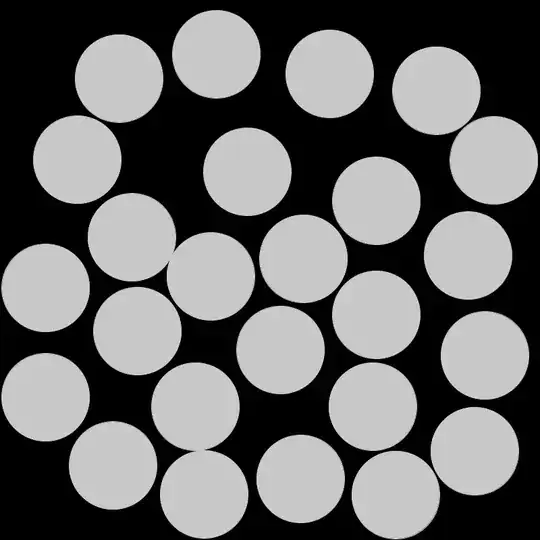A square with side length $a$ shall be filled with circular disks of radius $r$. In each turn, a new disk is placed randomly inside the square such that it doesn't overlap with any of the previously placed circles.
This picture shows an example for a terminal state (no more disks can be placed):
In this case, $a$ is $800$ and $r$ is $65$.
My question: Given $a$ and $r$, what is the expected number of turns until no more circles can be placed?
I don't really have a clue how to solve this problem. Let's denote the number of turns until the final state is reached with $X$. The only obvious fact I've been able to find is the consistency of $E(X)$ if $\frac{a}{r}$ is constant.
I am highly interested in a solution and would be thankful for any kind of help.
